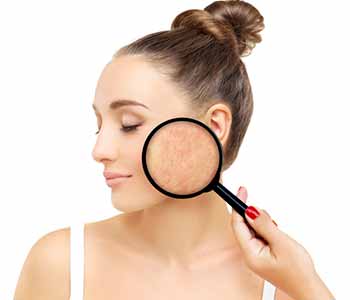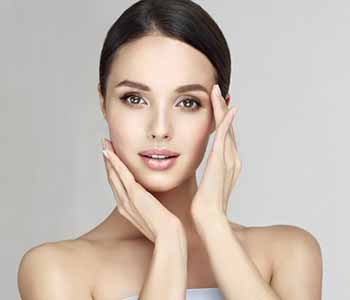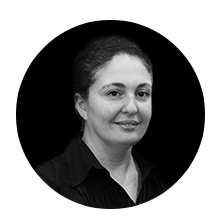Patients in the Bensonhurst, NY area who have been diagnosed with rosacea may want to speak to the professionals at Khrom Dermatology and Aesthetics to learn more about the benefits of effective treatment with our dermatological team.

Understanding rosacea
Patients who have chronic flushing, redness, and visible blood vessels on their facial area may be diagnosed with a condition known as rosacea. Rosacea can be difficult for some patients to control and may make them feel self-conscious about their appearance. Often, women struggle with this condition, and it can be troublesome to cover even with makeup! We see many patients in the area of Bensonhurst and Brooklyn, NY who visit our dermatologist, Dr. Tatiana Khrom, looking for effective treatment solutions.
Getting a professional diagnosis is the first step in determining the most effective treatment solutions. There is no specific test that is done to get a diagnosis of rosacea. Instead, the doctor will rely on your symptoms, medical history, and a physical examination of the skin during a flareup. Some tests may be done to rule out other common conditions that may be confused with rosacea such as acne or psoriasis. Once a diagnosis is made, discussions on treatment can begin.
Book an Appointment
While there is no cure for rosacea at this time, there are ways in which patients can reduce flare-ups and control the redness and appearance of blood vessels that characterize this chronic problem. Patients with rosacea will have to determine how severe their condition is and the type of rosacea they are diagnosed with to decide which treatment option is most appropriate for their specific needs. There is no single treatment that works for everyone, so this is important to consider when it comes to the wide variety of options available at Khrom Dermatology and Aesthetics. Some common treatment options may include:
- Topical medications – there are several types of topical treatments that can be used in addressing flare-ups and the redness associated with them. One common medication is brimonidine, which is applied to the skin and constricts the blood vessels. Other topical products that have been useful for patients with rosacea, especially those with bumps, is metronidazole and azelaic acid.
- Oral medications – many patients don’t think of rosacea as bacteria, though it can be helpful to use antibiotics to treat rosacea. This is to target the inflammation that is common with this condition and can help patients with moderate to severe rosacea who have pustules and bumps with their flare-ups.
- Therapies – laser therapy and IPL are three popular therapies that can be used regularly for patients who are experiencing routine and chronic flare-ups of their condition. These therapies are often beneficial in achieving the results patients desire.
- Trigger avoidance – for many of our patients, avoidance of triggers can help keep their condition under control. Knowing what causes triggers, such as spicy foods or extreme temperature changes, can greatly reduce the problems associated with this condition. Patients can also protect their skin by wearing scarfs, masks, and high SPF sunscreen.
Which treatment is right for me?

There is not a one-size-fits-all treatment when it comes to rosacea because of the many types of rosacea, the severity of the condition, and because everyone’s skin reacts differently to therapies. Sometimes patients will go through trial and error until they find the treatment that is best for their unique needs. We recommend working directly with our dermatologist to seek results.
Find your effective rosacea treatment with the help of our team at Khrom Dermatology and Aesthetics!
Dr. Tatiana Khrom and her professional staff can assist men and women who have been diagnosed with rosacea on ways to keep the redness and flushing under control. Patients in the Bensonhurst, NY area are welcome to connect with our team to find what solution is best. Contact the office at 718-751-0674 and visit us at 2797 Ocean Parkway in Brooklyn, NY to take the first step in treating your condition.
Share this Article
Back to Rosacea Page


